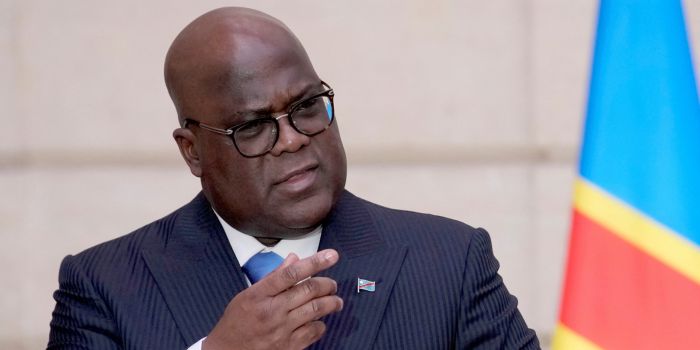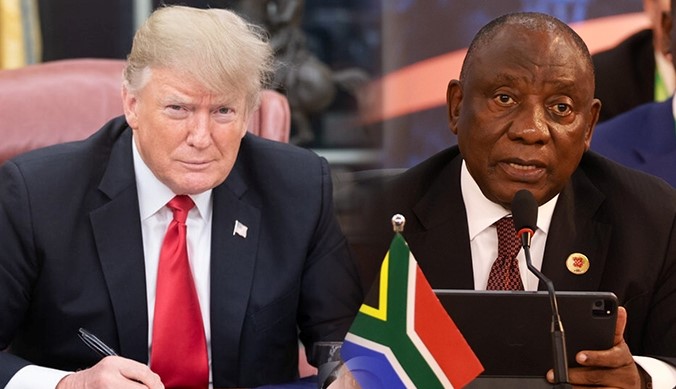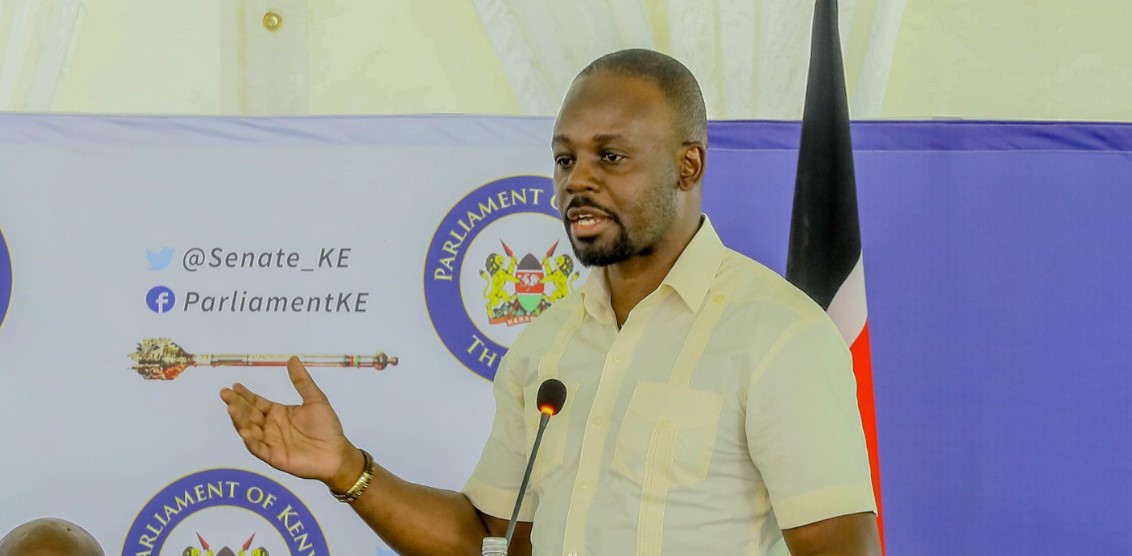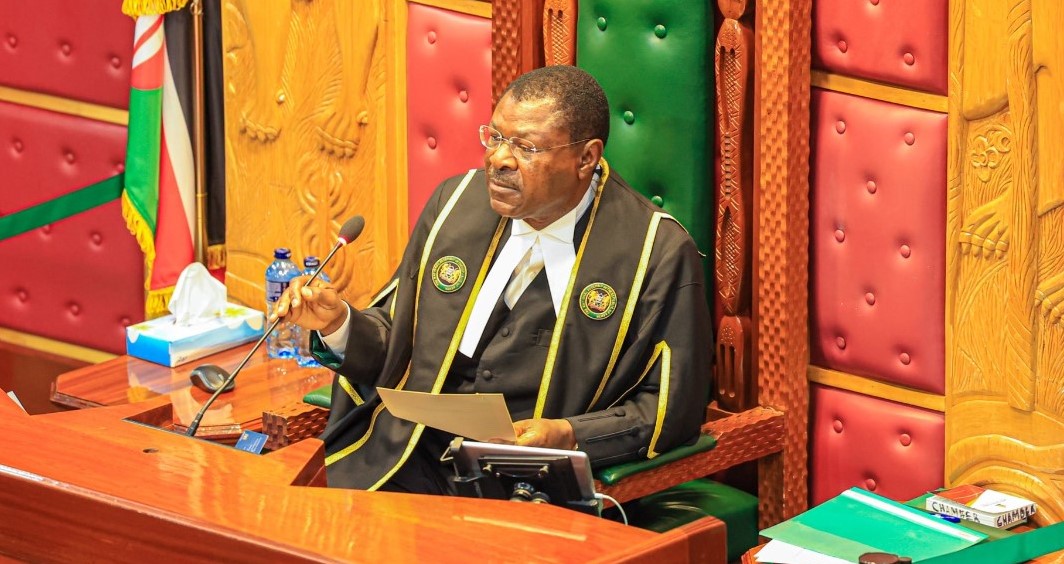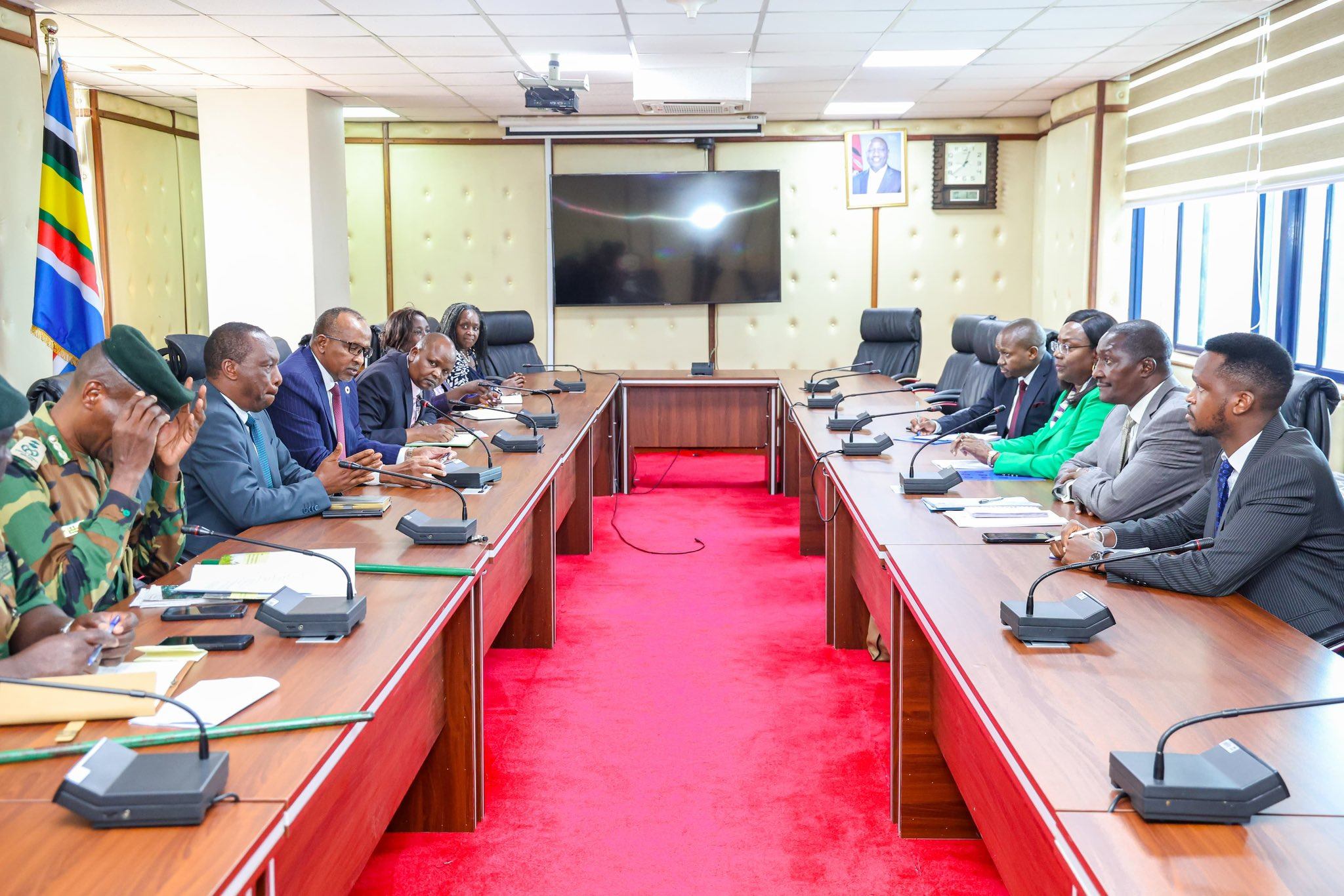Wetang’ula to challenge court ruling on dual role as Speaker and party leader

The judges emphasised that the Speaker, as an ex-officio Member of Parliament, must maintain neutrality.
National Assembly Speaker Moses Wetang’ula will challenge a High Court ruling that declared his dual role as Speaker and Ford Kenya party leader unconstitutional.
The decision has sparked sharp criticism from opposition leaders, who argue that his continued leadership of a political party compromises his impartiality in Parliament.
More To Read
- High Court declares Ruto's health human resource taskforce unconstitutional
- High Court orders state to release phones seized from 23 anti-abduction protesters
- High Court orders police to produce missing Mlolongo 4 abduction victims, dead or alive
- How High Court judge wrestled top cop Gilbert Masengeli in legal tussle over abducted rights activists
But his lawyer, Benson Milimo, dismissed concerns over the ruling, insisting that it has no immediate consequences.
Milimo maintained that the ruling did not require Wetang’ula to step down from either position.
“The court did not rule that he should cease holding the office of the Speaker or the position of Ford Kenya party leader. The party shall appeal against that decision of the High Court,” he said.
The High Court bench of Justices Jairus Ngaah, John Chigiti, and Lawrence Mugambi, ruled that Wetang’ula’s dual role was untenable. They found that once he assumed the Speaker’s position, his continued leadership of Ford Kenya violated constitutional principles.
The judges emphasised that the Speaker, as an ex-officio Member of Parliament, must maintain neutrality.
Undermines neutrality
“Holding a position in Ford Kenya party undermines the neutrality role in the National Assembly Speaker position. It violates the Constitution and is unlawful,” the court ruled.
However, they clarified that the ruling did not invalidate Wetang’ula’s election as Speaker but rendered his position as Ford Kenya leader inconsequential.
Reacting to the ruling, People’s Liberation Party (PLP) leader Martha Karua criticised Wetang’ula for maintaining his party leadership while serving as Speaker. She accused him of making biased rulings in favour of the ruling Kenya Kwanza coalition.
“Speaker Wetang’ula should not have continued to head a political party once he assumed the Speaker’s role in Parliament. That is a seat that should be independent and impartial,” Karua said.
She referenced Wetang’ula’s ruling on the majority party status in Parliament, accusing him of favouring Kenya Kwanza.
“You can see that as a member of the Kenya Kwanza Alliance, he gave a ruling that was incorrect, and I would dare say deliberately, and that was partial to the Kenya Kwanza Alliance,” she said.
Karua insisted that Wetang’ula must now choose between his political party and his role as Speaker.
Rule of law
“If the Kenya Kwanza Alliance, and in particular Speaker Moses Wetang’ula, are believers in the rule of law, he should choose whether to be Speaker or the leader of Ford Kenya. He can’t have both, and he must choose moving forward,” Karua said.
She further questioned Wetang’ula’s ability to remain impartial while actively participating in political activities.
“Being impartial is not just about saying it, but also being seen to be impartial. Would reasonable Kenyans who see him atop a vehicle, campaigning for a coalition that is in Parliament, and then making rulings that are questionable, believe that he is presiding over the House in an impartial manner?” she asked.
Karua also criticised Kenya Kwanza's reaction to the court ruling, arguing that their attempt to downplay it amounted to defying the Judiciary.
“When you downplay a ruling of the court, you are sort of saying it is impunity,” she said.
She warned that the ruling had broader implications beyond Wetang’ula, urging all political parties to respect the law.
“What they need to do moving forward—any party that has a backdoor alliance with Kenya Kwanza, including ODM, which has donated, as they say, their members to be in government — had better have a post-election coalition agreement, say goodbye to opposition politics, or choose opposition politics and divorce themselves from the government,” Karua said.
According to Karua, the ruling exposed the growing blurring of lines between the government and the opposition, which she said undermines democratic checks and balances.
“You can’t have it both ways. It blurs the line between opposition and government and therefore destroys the inbuilt checks and balances in our system of government,” she said.
Uncertainty in Parliament
The High Court’s decision has triggered uncertainty in Parliament, with the opposition now poised to reclaim key leadership positions. The ruling declared Azimio la Umoja as the majority coalition in the National Assembly, a move that could see several senior Kenya Kwanza lawmakers lose their posts.
The ruling hinges on Article 108 of the Constitution, which states that the Majority Leader must come from the largest party or coalition in Parliament.
With the court’s interpretation favouring Azimio, the opposition now stands to control key House committees.
If implemented, the ruling will grant Azimio a majority in critical committees such as Finance, Health, Education, Land, Labour, Trade, and Cooperatives. The coalition will also take over powerful oversight committees like the Public Accounts Committee (PAC) and the Public Investment Committee (PIC), which are traditionally chaired by the opposition.
While Kenya Kwanza lawmakers have remained largely silent on the matter, UDA Organising Secretary Vincent Musyoka Musau downplayed the ruling, arguing that it did not account for recent political realignments.
“The ruling is neither here nor there,” he said, pointing out that some parties initially allied with Azimio had since shifted allegiance to Kenya Kwanza. He cited Maendeleo Chap Chap, which was still bound by legal agreements at the time the case was filed.
“If we were to appeal, we now have documents proving that some parties have formally exited Azimio. Legally, they are now in Kenya Kwanza,” Musau said.
Despite the pushback, Wiper leader Kalonzo Musyoka maintained that Wetang’ula must step down, citing constitutional violations.
“On the critical issue of ethics and integrity under Chapter Six of our Constitution, Speaker Moses Wetang’ula must step down. A Speaker found guilty of violating the Constitution is unfit for office — this ruling is a damning indictment of his tenure. The message is simple: resign,” he said.
The ruling, if enforced, is expected to significantly weaken Kenya Kwanza’s parliamentary influence, shifting legislative control to the opposition.
The next steps, including a potential appeal or parliamentary negotiations, will determine the full impact of the landmark decision.
Top Stories Today
